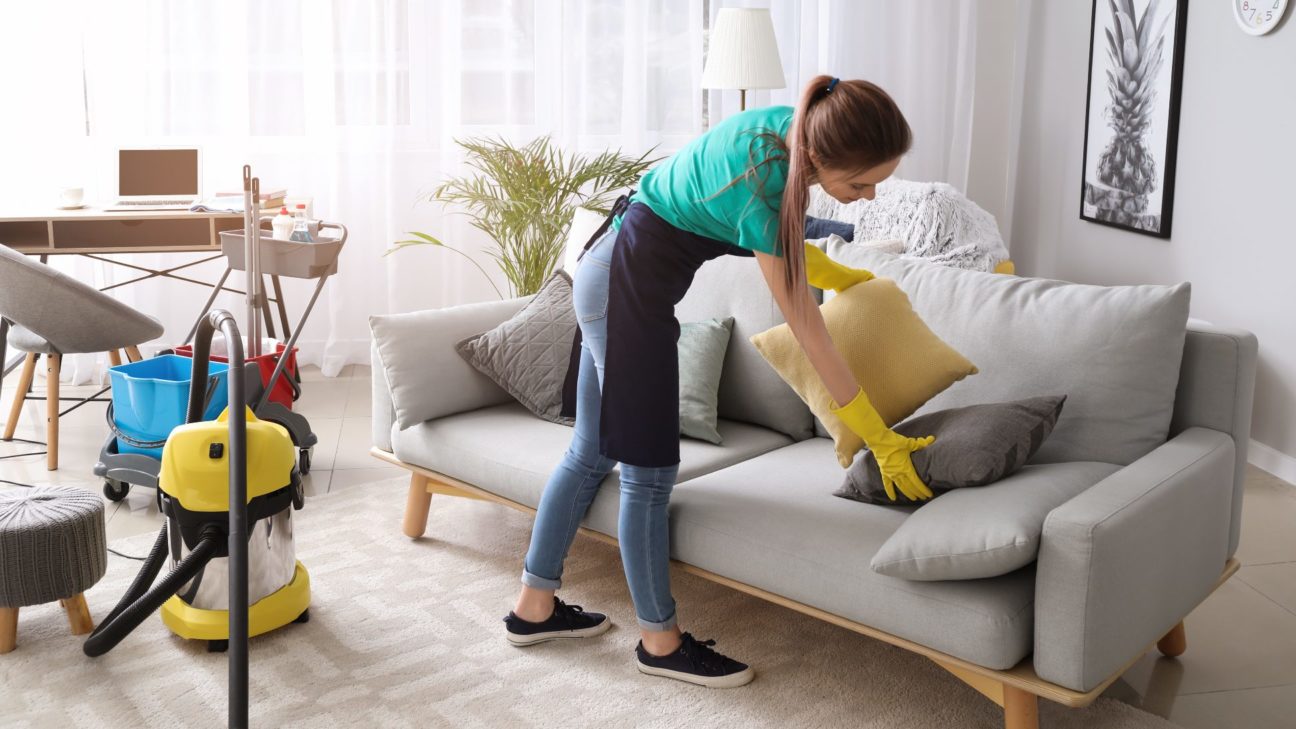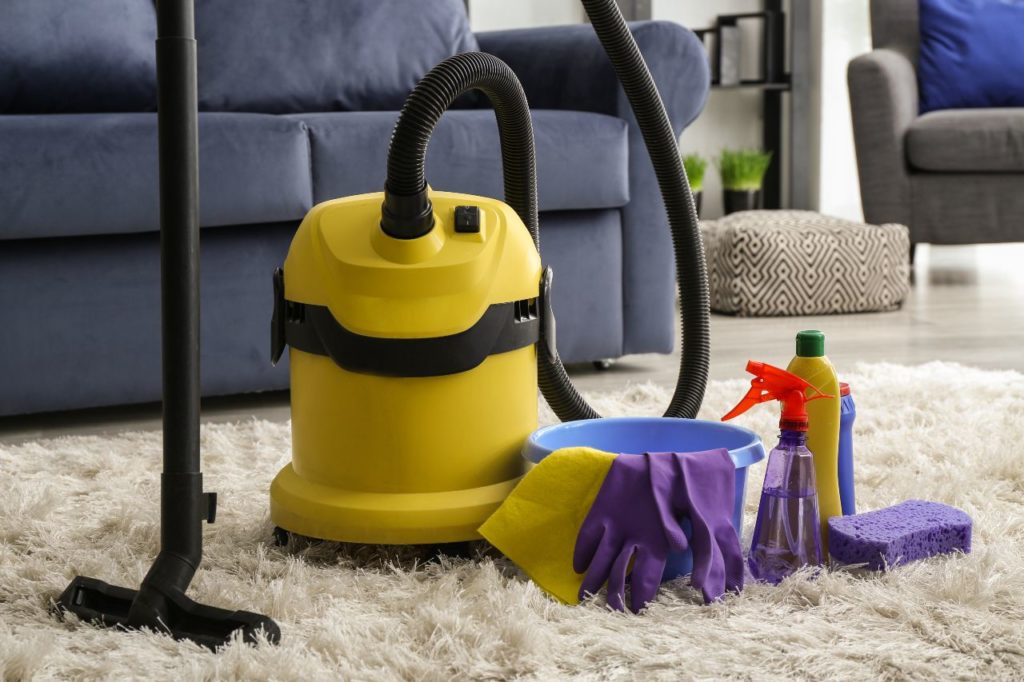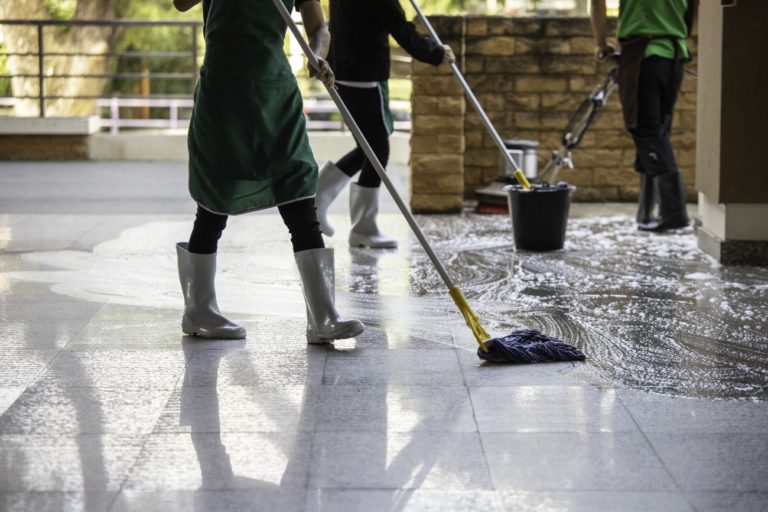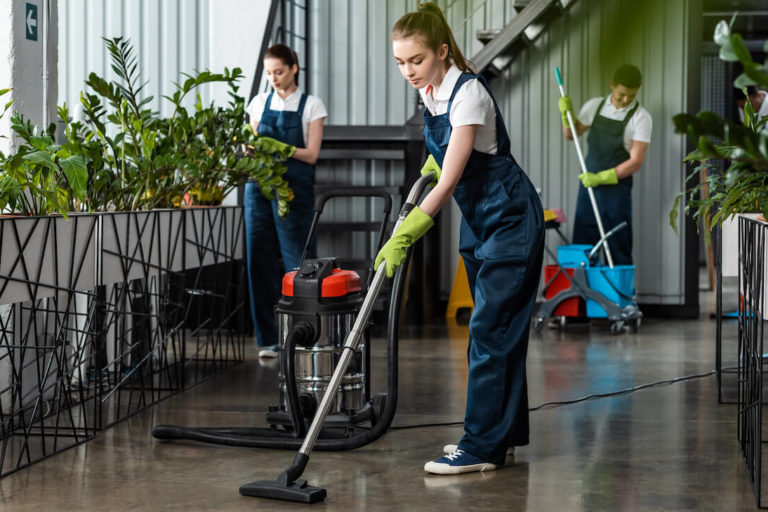How to start a house cleaning business in 5 steps

Key takeaways
- Keep your business name short and sweet so there’s no confusion about what services you offer
- Each state has its own regulations for registering your house cleaning business, so always double-check local requirements
- Even today, word-of-mouth referrals are the strongest way to gain potential customers
If you’re an aspiring small business owner, you might want to know how to start a house cleaning business. Compared to many other small businesses, cleaning companies have lower upfront startup costs, typically coming in at about $8,000. That’s a fraction of what it costs for small businesses in other industries, like restaurants, where the startup costs can be in the hundreds of thousands of dollars.
If you’re wondering how to start a house cleaning business, you won’t need much more than the cleaning supplies, cleaning products, and some proper planning. Here are five basic steps to get started.
1. Name your new business
House cleaning is different from commercial cleaning. Your new clients are inviting you into their homes, so they need to trust you. Potential clients will often rely on family members and friends for a word-of-mouth referral for trusted cleaning services.
The branding of your new business should reflect company values and mirror what’s important to potential customers.
Before you ask yourself how to start a house cleaning business, ask yourself these questions:
- What do my customers value most?
- What about my home cleaning services makes me different from other cleaning solutions?
- How can my business name help to build trust?
While you want a memorable business name, you don’t want it to be wacky or confusing. Here are a couple of tips for choosing a name that works:
Don’t get cute with spelling
It may be tempting to use puns or take liberties with spelling like “8 Cr8zy Cleaners,” but this can hurt your brand. Taking creative liberties could make your business name difficult to remember, confusing to understand, and hard to spell. Instead, choose a clear and grammatically correct name.
Make your business name relevant to what you offer
It helps to decide ahead of time what the future will look like for your cleaning business.
If you plan to grow your cleaning company and expand to commercial cleaning in the future, don’t name your business “Your Home Cleaning Services,” or it could be a headache to change later.
That said, if you’re too vague with your business name, it could end up confusing potential customers. Be intentional and think big-picture while using clear language. For example, Clean Sweep Cleaners, Home Hygiene Genies, or Pro Maids to Go are all direct yet creative cleaning business names.
Keep it short and sweet
CNBC reports that nearly 4 billion people will rely solely on their smartphones to search the internet by 2025. That’s about three-quarters of internet users worldwide. A long business name can make it hard to search and remember. Make it easier for potential customers to find your cleaning business and keep a “less is more” approach.
2. Register your cleaning business

If you’re cleaning houses for family members and friends for a few bucks, you probably don’t need to register your business.
However, for anything more substantial where you’ve developed a business plan or where there are multiple business owners involved, you’ll need to register your cleaning business.
If your income from house cleaning is more than $500 per month, you’ll need to declare taxes to the IRS. Licensing your business will involve registering your name, picking a business structure (below), registering with federal and state revenue agencies, and potentially registering a trademark. Read more about licensing on the Small Business Associations website.
When learning how to start a house cleaning business, there are three main types of small business structures to consider:
Sole proprietorship
The Small Business Association defines a sole proprietorship as “an unincorporated business owned and run by one individual with no distinction between the business and you, the owner.” This means that in addition to all profits, you’re also responsible for the debts, losses, and liabilities. A sole proprietorship is the easiest business to form, but it’s also the riskiest as you bear the burden of any unexpected expenses and debts, including lawsuits.
Limited liability corporation (LLC)
This business structure is a little less risky than a sole proprietorship as there is a limited liability in the event of unexpected expenses or debts. Each state will have different regulations when it comes to an LLC. You can still register an LLC as the sole owner or as a partnership. Depending on how you register, it will affect your taxes. To learn more about the type of LLC that suits your small business, check the IRS website.
Small business franchise
A cleaning franchise means you’re buying into an existing business and operating a local branch of that business. There are advantages to choosing a cleaning franchise as a first-time cleaning business owner.
One advantage is that you become part of a well-known brand, which means less time and money spent on advertising and marketing a brand-new business.
Also, most franchises provide a formulaic system that eliminates a lot of the guesswork on how to start a house cleaning business. There will likely be a network of people behind you who want to see your cleaning business succeed and will provide training and marketing support to ensure it does.
That said, unlike the other two business structures, there is less freedom and independence with a franchise as you will have to adhere to its strict policies and guidelines. Even small changes you may want to make to the cleaning products you use or uniforms you wear will have to be approved beforehand.
3. Create a pricing plan
Forecasting your expenses will help you develop the right pricing strategy for your cleaning jobs. Create a file that tracks all relevant business expenses for 12 months to get an accurate idea of operational costs. This way, you’ll know how much you need to price your services to earn a profit.
In the early stages when you don’t have a full year of data from your cleaning business startup, do some research into what other local businesses are charging for similar services. This will help you remain competitive.
You can charge an hourly rate or provide a flat estimate per job. In either case, there are a few factors that will influence your quote:
- Labor and cleaning materials: This includes everything from latex gloves and cleaning chemicals to the wages you pay any part-time or full-time employees.
- Your small business overhead: This includes any business expenses outside of the labor and materials used in your house cleaning business.
- Profit goals: This is the number you’re hoping to achieve as a take-home amount after your expenses and taxes are paid.
4. Advertise your small business

The best form of advertising is always word-of-mouth referrals. Nielsen reports that 88% of people trust word-of-mouth recommendations from people they know over any other type of advertising worldwide.
Print out some business cards with your business name and contact information. You can pass them out when meeting new people and leave a few extra with any satisfied customers to make it easy for them to spread the word.
You might even offer a discount to first-time customers or encourage customers to refer a friend and print it on the back of your business cards so it stays top of mind.
Another low-cost promotion method is to put up flyers in the main neighborhoods you service and at local community boards.
Be sure to create social media accounts for your business name. It’s as easy as signing up and selecting a username that matches your business name.
Also, sign up for free online profiles and claim your Yelp Business Page where you can add photos, contact details, and get insights about who is interested in your business listing.
Studies show that 97% of people make a purchase after visiting Yelp and 80% of people admit to sharing the businesses they discover with a friend—it’s a one-stop shop for generating sales and free word-of-mouth advertising.
When potential customers have questions, they will seek answers online. Having a well-advertised business both online and offline is part of having a successful cleaning business.
5. Manage your client base
We’ve mentioned the importance of establishing an online presence and providing a community forum with free business pages on sites like Yelp.
The second part of having an online presence is maintaining it. Whether you’ve received rave reviews, inquiries, or negative reviews, you want an effective customer service strategy in place.
Responding to customer comments is good public relations and builds brand trust. For instance, if someone happens to complain about a service on your Yelp Business Page or one of your social media accounts, be sure to respond and offer ways to improve the situation. The goal is to show people that you take your business seriously and want to make every customer happy.
How to start a house cleaning business that thrives
A cleaning business is great for any aspiring small business owner who wants to hit the ground running with relatively low overhead. What’s more, the research done upfront could save a lot of extra time and cost later.
As with almost any business, you’ll need to choose the right name, business structure, competitive pricing, and effective marketing strategies. Claiming your Yelp Business Page is an excellent way to reach new customers and keep in touch with previous clients. It also allows you to answer any questions from potential customers.
When starting a cleaning business, remember that it’s a marathon, not a sprint. A slow approach can ensure steady and successful growth.
The information above is provided for educational and informational purposes only. It is not intended to be a substitute for professional advice and may not be suitable for your circumstances. Unless stated otherwise, references to third-party links, services, or products do not constitute endorsement by Yelp.



